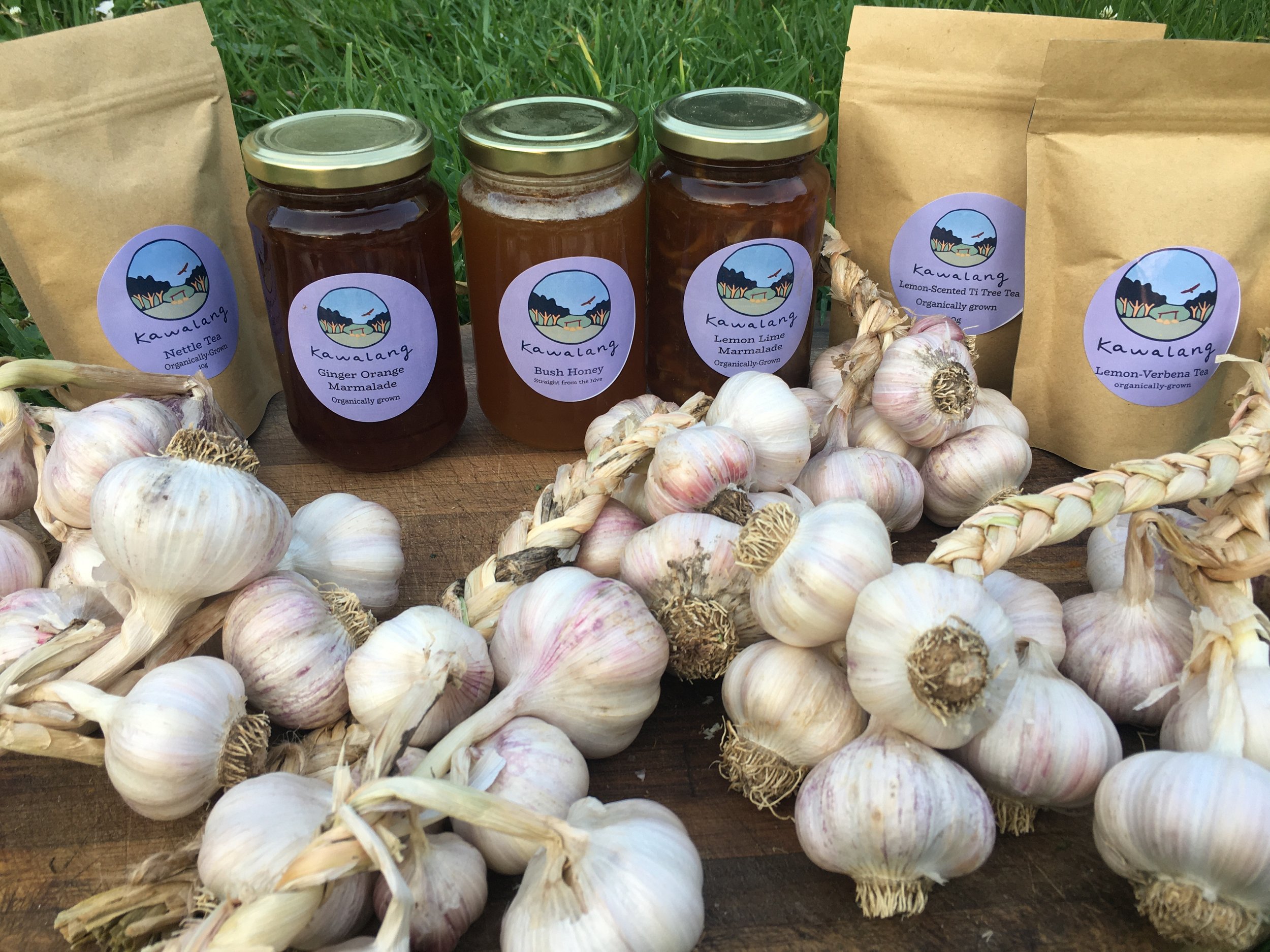At Kawalang we think sustainably….
Living sustainably is a process.
It involves listening, conversation, inventive thinking.
What we do at Kawalang
We Grow
Keith rotates crops, and considers what works seasonally and with the weather. He experiments with different plants, including yacon (low GI sweetener), tamarillo (tree tomato), heritage tomatoes, at the same time growing our staples…potatoes, sweet potatoes, veggies, citrus, stone fruit, figs, berries. Nut, olive and avocado trees are maturing; shitake mushrooms a treat.
We Harvest
Native and European bees pollinate our plants and are a joy to watch and listen to as they frequent plants in flower (even tiny ones) including borage and tuckeroo flowers. We harvest our European hive, bringing delicious honey to the table.
We Conserve
Brynnie morphs what grows in interesting ways: tomatoes, garlic, zucchini, leeks into pasta sauce. Fruit becomes different marmalades; tomatoes, tamarillo, cucumbers become chutneys. Veggies are pickled. Beans are dried. Some garlic: to black garlic. Berries, a compote or frozen. Elderberries, a healthy drink. Yacon becomes chips or a sweetener for cakes. Leaves dried into teas.
We Share
We share, exchange and sell excess produce, including tomatoes, turmeric, yacon, garlic, black garlic, honey, chutneys, marmalades, dried herbs, herbal teas.
Sustainability at Kawalang
Solar
We have 10 kW of solar power, which covers our energy needs with substantial electricity sent to the grid. We are purchasing an electric car to be charged from solar PV, which will also provide backup power. Our tools are electric.
Water
We collect water from every roof in our tanks: 69,000 litres (house and studio); 100,000 litres (garden). We mostly hand-water fruit and veggies to ensure sustainable usage. We are contemplating a second 100,000 litre tank for the gardens as we have a lot of fruit trees and dry times will come again.
Soil
Soil is made from everything organic: compost fertilised by our chooks, grass cuttings, weeds, fallen leaves, pruned trees. Nothing is wasted. We source horse and goat manure from our neighbours and get mulch from trees trimmed and chipped on our road.
Waste
We compost food scraps to make soil. We consider waste carefully in our purchases, buy local, recycle lots, repurpose containers in a variety of ways, including to grow seedlings.
Food
Our food is grown organically. We plant, mulch, weed, water and harvest our produce with love. We source local meat from nearby and seek sustainable sources of fish. We share, exchange and sell what’s extra.
Transport
We minimise travel, consolidate trips and work online where feasible, encourage car pooling.
Recycle
We have launched a Share What’s Spare, Food & Conversation event at Kawalang to support local recycling. We only purchase new when it’s not possible to buy used, and look for ways to repurpose items.













